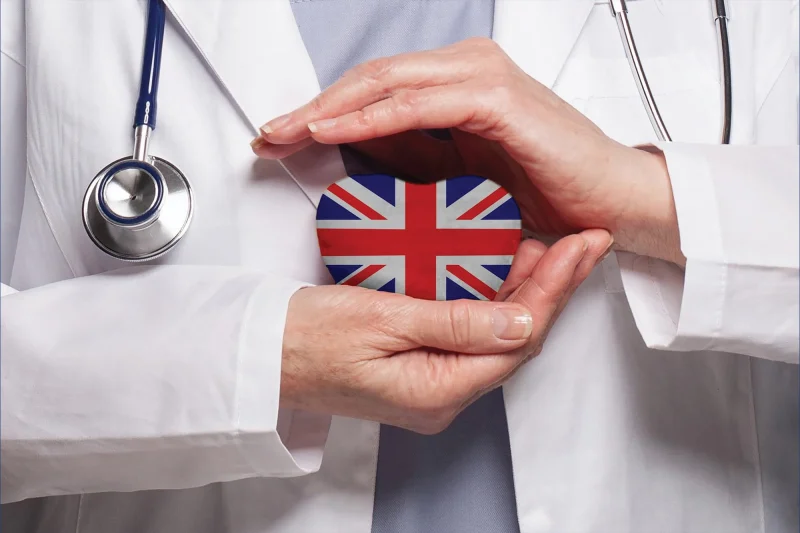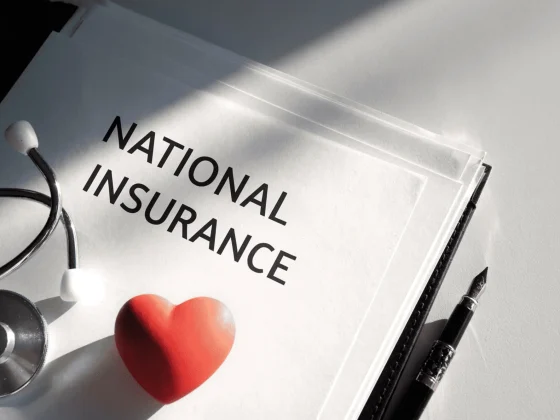When moving to a new country, things like housing, work, and setting up a bank account often come first. But when it comes to health, everyone wants to feel prepared. After all, no one wants to wake up sick one morning thinking, “What do I do now?”
That’s why it’s important to understand the UK’s healthcare system and how to register with the NHS (National Health Service) before you need it.
💊 What is the NHS?
The NHS is the UK’s publicly funded healthcare system, providing access to many essential services free of charge. If you’re living in the UK long term, you can register with the NHS to access healthcare.
Not everything is fully covered—things like dental care, eye tests, glasses, and some treatments may involve extra costs. However, if you’re on a low income or have certain needs, you may qualify for discounts or free services, so it’s worth checking in advance.
🩺 Registering with a GP
To use the NHS, you first need to register with a GP (General Practitioner)—your local family doctor. GPs are the first point of contact for most health issues.
To register, you’ll usually need:
- Proof of identity (passport/visa/residence permit)
- Proof of address
Some practices let you complete an online form, while others ask you to register in person. You can check the process on your local GP practice’s website.
Once registered, any non-emergency health concern should go through your GP first.
👩⚕️ Seeing a Doctor
If you feel unwell, you’ll usually need to make an appointment with your GP rather than going directly to a specialist. Appointments can be booked online (e.g., via the NHS App) or by phone.
- The GP will examine you, provide treatment, or, if necessary, refer you to a hospital or specialist.
- Waiting times for GP appointments can vary, especially in busy cities, so patience is sometimes needed for non-urgent issues.
🏥 Hospitals and Specialist Referrals
If your GP refers you, you’ll then be seen at a hospital or by a specialist. Treatment is still covered under the NHS, but waiting times can be long, so it’s important to plan ahead and attend your appointments.
🚑 Emergencies and A&E
For serious, urgent conditions—such as difficulty breathing, chest pain, or very high fever—you should go to A&E (Accident & Emergency) at your nearest hospital. This service is available 24/7.
Be aware that A&E departments are often very busy, so if it’s not a true emergency, it’s better to contact your GP or NHS 111 first.
☎️ NHS 111
For non-emergency medical advice, you can call NHS 111 (free, available 24/7). They can:
- Advise on self-care at home
- Direct you to a pharmacy, GP, or urgent care centre
- Arrange an out-of-hours appointment if needed
⚠️ For life-threatening emergencies, always call 999.
🖊️ Private Health Insurance
While the NHS covers most care, some people choose private health insurance. Reasons include:
- Faster access to specialists
- More choice of doctors and hospitals
- Quicker diagnostic tests
Costs and coverage vary depending on the provider and policy, so check carefully before buying.
💡 Tips for Using the NHS
- Register with a GP as soon as you arrive.
- Use the NHS App to book appointments and manage prescriptions.
- Keep track of referrals and follow up if waiting times are long.
- Learn which services are NHS-covered and which may require extra payment (e.g., dental, optical).
✨ Final Thoughts
At first, the UK healthcare system may feel a little complicated, especially if you’re used to something different. But once you understand how it works, you’ll see that the NHS offers reliable, safe, and mostly free healthcare.
Registering early, knowing where to go, and making use of digital tools will help you feel confident and secure.
For official information, always check www.nhs.uk. Stay healthy and safe in your new home! 💚










